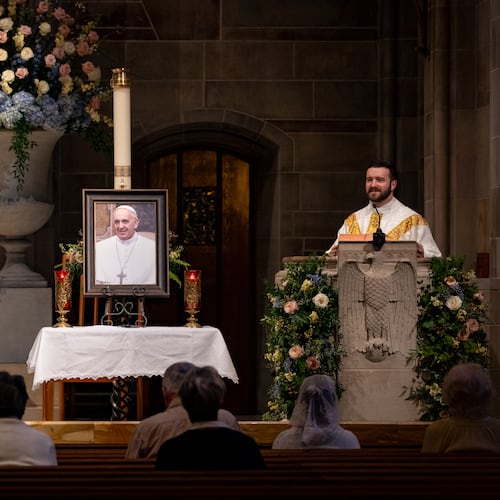Metro Atlanta doesn’t get snow or ice often, but when it does, Gwinnett County has a plan in place.
Each county department has its own contingency plan, but the government’s primary concern is “public safety and mobility,” spokesman Joe Sorenson said.
The county utilizes 50 road maintenance employees in six maintenance districts during ice and snow events, and 15 to 20 additional employees are available to assist with tree clearing if they are needed, Sorenson said. About 18 signal technicians are available to repair signal outages.
There are stockpiles of salt and sand mixtures at five locations throughout the county: Lawrenceville, Grayson, Buford, Duluth and Lilburn. The county has 20 spreader gates to spread the salt and sand mixture, and there are at least three spreader gates in each of the six maintenance districts. Each maintenance district also has one plow.
When ice or snow is in the forecast, the county checks all equipment to make sure it’s operating properly and alerts the workers who will be first responders for road maintenance, traffic operations and traffic signals. Depending on the forecast, the county may preemptively brine bridges and other “problem areas” including curves and steep areas, Sorenson said.
Once snow or ice actually falls, priority for road clearing will be given to bridges, major intersections, major roadways and accident locations.
While the county prepares for winter storms, residents should have their own plans in place, said Capt. Tommy Rutledge, spokesman for Gwinnett County Fire and Emergency Services. Smoke and carbon monoxide detectors should be operational with fresh batteries. Residents should also keep a winter weather preparednes kit in their home, including:
• Flashlights and extra batteries
• Battery-powered weather radio and portable AM/FM radio
• Non-perishable food and bottled water
• A first aid kit
• Blankets, sleeping bags and extra clothing for warmth
• Fully charged cell phones (or fully charged portable cell phone chargers)
• Extra baby items if you have babies or small children
If you have a fireplace, be conscious of the size of your fire and ensure it is fully extinguished before going to sleep or leaving home. Candles should also be watched carefully and extinguished before leaving them unattended. Gas grills, charcoal grills and patio fireplaces should never be used indoors, Rutledge said.
If you use a portable generator, make sure to leave it outside and keep it a safe distance away from the house, Rutledge said. Generators could cause carbon monoxide poisoning if left inside or too close to the home, and they should never be used in a basement or garage.
If you have power and are using a space heater, do not leave combustible items like blankets or clothing near it and make sure there is a lot of space around it, Rutledge said.
If you are outside during or immediately after a storm, stay away from downed power lines, which could cause severe injury or death if you touch them. They should be reported to the fire department and the appropriate utility company, Rutledge said.
About the Author
Keep Reading
The Latest
Featured

